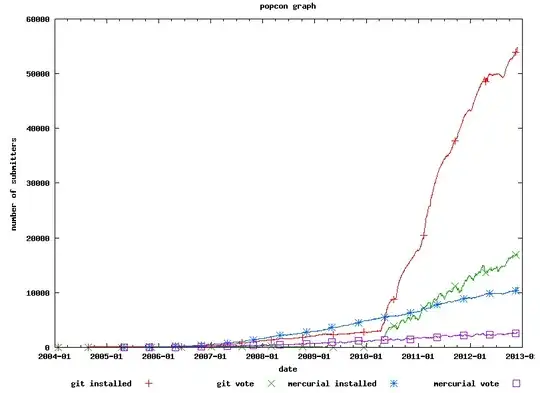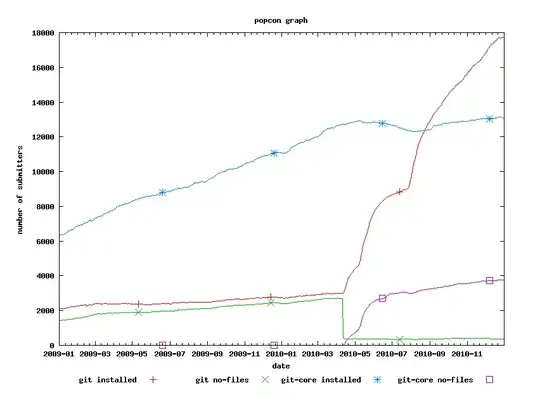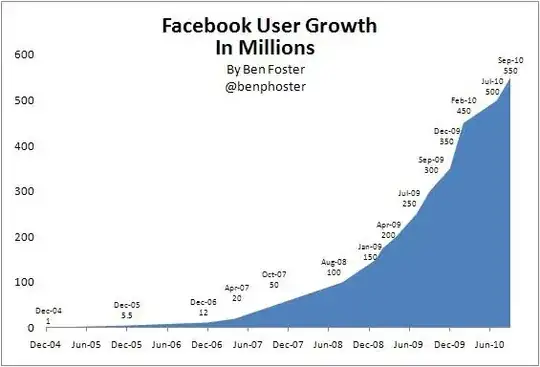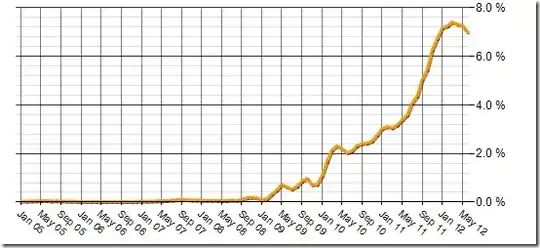I was using Darcs for my own projects for a little while. I switched to git during the rapid ascension that your graph is referring to, so here is my observation:
Distributed source control systems at about that time were a bleeding edge thing. The so-called alpha programmers were using them on the side, but they fell outside of the radar of most professional software developers. The CVS/SVN/SourceSafe/TFS way of looking at the world was one that programmers in general were more or less happy with and most people assumed that the issues that spawned the distributed source control system could be fixed with better tooling. Just as you got an improvement by going from CVS -> SVN that there would someday be something that would allow you to go SVN -> SVN++. How else would you manage source control?
Then came git. What forced git onto everyone's radar was that there was a huge, public project that immediately adopted it. Git got a lot of users for free--if you were going to do serious kernel hackage, you used git. While I can't be 100% sure, I would wager that at that point in time no other DVCS had such a large user base.
Then it worked. It worked well. It worked well in public. It also, for its initial warts, was more stable than most concurrent DVCS at the time. Darcs, for example, could be put into an inconsistent state that required an absurdly complex (quadratic? factorial? Can't recall for sure, but it was bad) utility to fix. Git has always been more stable.
From its large userbase it just sort of bled out.
Every project, commercial or open source, needs that critical mass. Darcs didn't get it. Neither did Mercurial. Think back. Lots of smaller projects use it. There are probably even a number of commercial users. But what is your big success story?
"If it's good enough for the Linux kernel, it's good enough for you" is a very convincing argument.
So, to summarize, it was a good product that came along at the right time and got a large, devoted userbase.




